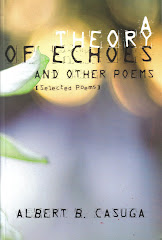23 March 2009
Practice vs. theory
That writers are producing literary texts in languages other than their own is obvious. The practice of multilingual literature has been going on for centuries. What has not been going on, except in bits and pieces here and there, is the theory of multilingual literature. The situation is similar to the disjunction between the theory and the practice of translation. In translation theory, translators should translate from a foreign language (source language) into their mother tongue (target language), but translators continue to translate into languages other than their own. Translators are also supposed to translate from the original language, but translators do excellent translations based on translations (source language to first target language to second target language). Btw, this is not the same thing as the old story that physics proves that bumblebees cannot fly; that is an urban legend (read the amusing essay by physicist Ken Zetie entitled "The strange case of the bumble-bee that flew"). The inability of literary critics to come to terms with multilingual literature is not an urban legend: it's a challenge to critics to wake up to a globalized literary culture.
Posted by Isagani R. Cruz at 4:08 AM
Albert B. Casuga said...
A globalised literary culture has always existed in terms of the universal themes of the "human condition." When the particular material of any artist is a synecdochal correlative of the universal, wherever, whoever, whatever he is, he has "globalised" his cultural ambit.
The problem is not the critic waking up to a "globalised literary culture", but it appears to be the still "uncreated literary language" to express that culture to a globalised audience.
I would worry about globalisation -- it could be a pipe dream. The economic counterpart is already wreaking havoc. A global language then? Whoever rises strongest in world economy, culture, production of war machines, etcetera, will have that option to "globalise". Why is that necessary for literature? Will world wars leave any nation of readers reading the global literature in a global language?
Will the absence of a global culture create another Dark Ages? As a critic, I still need my sleep. As an artist, I hope I retain the courage to create even with a smaller audience.--ALBERT B. CASUGA
23 March, 2009 10:38
Senate passes reauthorization of key surveillance program despite privacy
concerns
-
The legislation would extend for two years the program known as Section 702
of the Foreign Intelligence Surveillance Act, or FISA. It now goes to
President...
4 hours ago











No comments:
Post a Comment